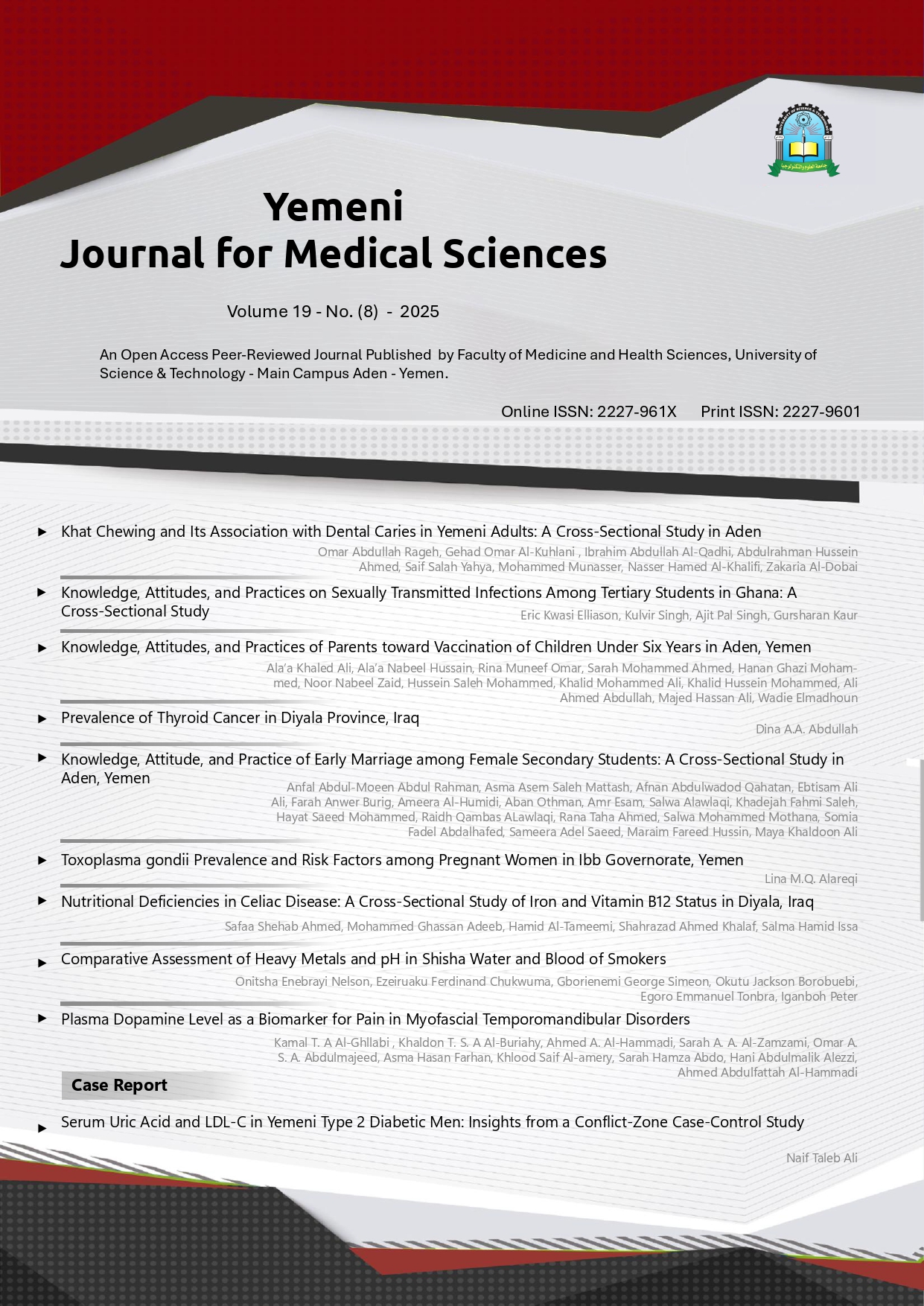Knowledge, Attitude, and Practice of Early Marriage among Female Secondary Students: A Cross-Sectional Study in Aden, Yemen
##plugins.themes.bootstrap3.article.main##
Abstract
Background: Early marriage remains a major challenge in Yemen, which affects development and contradicts human rights.
Objective: The present study aims to assess the knowledge, attitude, and practices regarding early marriage among female secondary school students in Yemen.
Methods: A cross-sectional study was conducted on 100 female secondary school students aged 14–19. Stratified sampling recruited students in the scientific section of grades 10–12. There were structured questionnaires to gather data for demographic, socioeconomic, and thematic variables of early marriage. Analysis was performed using SPSS.
Results: The majority of respondents were unmarried, aged 14–16, and had completed high school or university; nearly 72% had previously been exposed to some information about marriage, and 42% had a family history of underage marriage. 72% of participants believed that early marriage was unfair to girls, and they primarily attributed decision-making to the girls themselves (42%) or their families (38%). The main causes of early marriage were poverty (23%) and customs and traditions (69%), and the most common result was increased divorce rates (80%). The majority of participants (76%) believed that the best way to prevent early marriage is to raise awareness among girls and the general public.
Conclusion: The results highlight the necessity of community awareness campaigns, evidence-based policymaking, and educational interventions that empower teenage girls and aid in reducing the incidence and effects of early marriage in Yemen.
##plugins.themes.bootstrap3.article.details##
Early marriage, Knowledge, Attitude, Practice, Secondary female students

This work is licensed under a Creative Commons Attribution 4.0 International License.
YJMS publishes Open Access articles under the Creative Commons Attribution (CC BY) license. If author(s) submit their manuscript for consideration by YJMS, they agree to have the CC BY license applied to their work, which means that it may be reused in any form provided that the author(s) and the journal are properly cited. Under this license, author(s) also preserve the right of reusing the content of their manuscript provided that they cite the YJMS.








